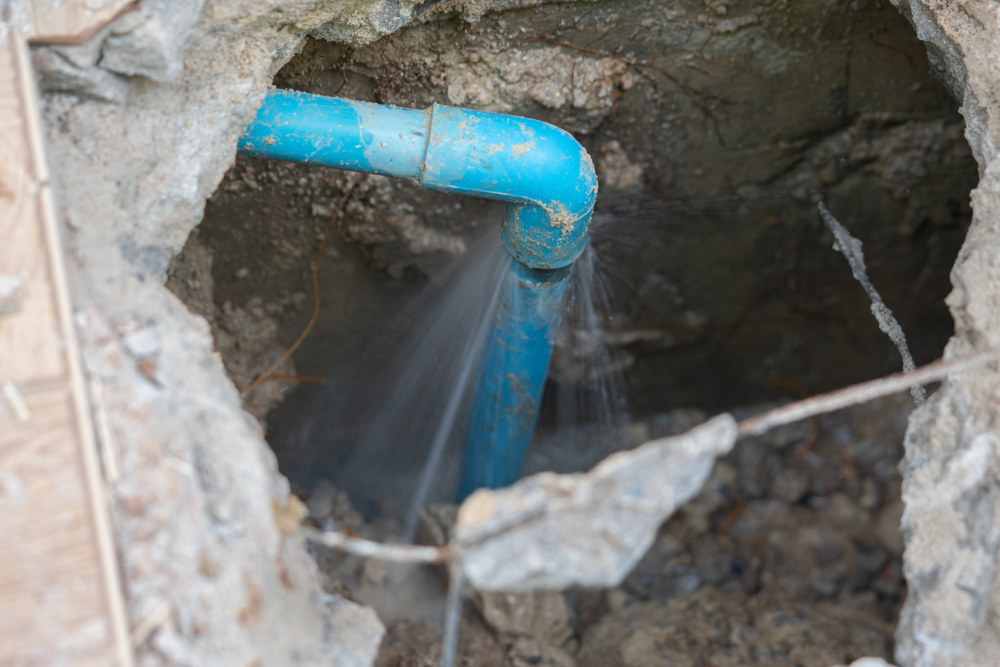Detecting Hidden Water Line Leaks: Six Effective Detection Methods
Detecting Hidden Water Line Leaks: Six Effective Detection Methods
Blog Article
Just how do you actually feel in regards to Finding hidden leaks?

Early discovery of dripping water lines can alleviate a prospective calamity. Besides saving you money, it will lessen the stress and frustration. The minute you discover a leakage, calling your plumber for repair work is the best service. Some small water leakages may not be visible. Right here are some hacks that assist if you can not identify it with your nude eyes.
1. Take A Look At the Water Meter
Every residence has a water meter. Examining it is a surefire manner in which helps you discover leaks. For beginners, shut off all the water resources. Make sure nobody will flush, use the faucet, shower, run the washing device or dishwashing machine. From there, most likely to the meter and watch if it will certainly transform. Given that nobody is utilizing it, there need to be no motions. That suggests a fast-moving leakage if it relocates. Similarly, if you find no changes, wait a hr or two and inspect back once more. This indicates you may have a slow-moving leakage that could also be underground.
2. Inspect Water Consumption
Examine your water costs and also track your water consumption. As the one paying it, you ought to see if there are any type of disparities. If you detect sudden changes, in spite of your intake coinciding, it implies that you have leaks in your plumbing system. Remember, your water bill should fall under the same range on a monthly basis. A sudden spike in your bill shows a fast-moving leak.
At the same time, a consistent rise monthly, even with the exact same routines, shows you have a slow leakage that's likewise slowly intensifying. Call a plumber to completely check your building, especially if you really feel a cozy location on your floor with piping beneath.
3. Do a Food Coloring Test
When it involves water intake, 30% comes from commodes. Examination to see if they are running properly. Decrease specks of food color in the storage tank and wait 10 mins. If the shade somehow infiltrates your bowl throughout that time without flushing, there's a leakage in between the tank and also bowl.
4. Asses Outside Lines
Don't fail to remember to inspect your outdoor water lines also. Ought to water seep out of the connection, you have a loosened rubber gasket. One small leak can waste lots of water and also spike your water costs.
5. Check and Analyze the Situation
House owners need to make it a practice to examine under the sink counters and also even inside cabinets for any type of bad odor or mold growth. These two red flags indicate a leakage so timely focus is called for. Doing routine inspections, also bi-annually, can save you from a major issue.
If you understand your house is currently old, keep a watchful eye on your heating units, hose pipes, pipes and so on. Look for discolorations and also damaging as most home appliances and also pipelines have a life expectancy. They will additionally normally deteriorate due to wear and tear. Do not wait for it to intensify if you believe leaking water lines in your plumbing system. Call a professional plumber right now so you do not end up with a horrible mess in your home.
Early detection of leaking water lines can alleviate a possible disaster. Some small water leakages may not be noticeable. Examining it is a proven way that aids you find leaks. One tiny leak can squander loads of water and also surge your water expense.
If you think leaking water lines in your plumbing system, don't wait for it to intensify.
WARNING SIGNS OF WATER LEAKAGE BEHIND THE WALL
PERSISTENT MUSTY ODORS
As water slowly drips from a leaky pipe inside the wall, flooring and sheetrock stay damp and develop an odor similar to wet cardboard. It generates a musty smell that can help you find hidden leaks.
MOLD IN UNUSUAL AREAS
Mold usually grows in wet areas like kitchens, baths and laundry rooms. If you spot the stuff on walls or baseboards in other rooms of the house, it’s a good indicator of undetected water leaks.
STAINS THAT GROW
When mold thrives around a leaky pipe, it sometimes takes hold on the inside surface of the affected wall. A growing stain on otherwise clean sheetrock is often your sign of a hidden plumbing problem.
PEELING OR BUBBLING WALLPAPER / PAINT
This clue is easy to miss in rooms that don’t get much use. When you see wallpaper separating along seams or paint bubbling or flaking off the wall, blame sheetrock that stays wet because of an undetected leak.
BUCKLED CEILINGS AND STAINED FLOORS
If ceilings or floors in bathrooms, kitchens or laundry areas develop structural problems, don’t rule out constant damp inside the walls. Wet sheetrock can affect adjacent framing, flooring and ceilings.
https://www.servicemasterbyzaba.com/blog/how-to-detect-water-leakage-in-walls/

Do you enjoy reading up on Hacks to detect leaks? Try leaving a remark down the page. We'd be delighted to hear your thinking about this blog. We are looking forward that you come back again in the near future. Sharing is good. One never knows, you will be helping someone out. We recognize the value of reading our article about Top leak detection hacks.
Ready to assist! Report this page